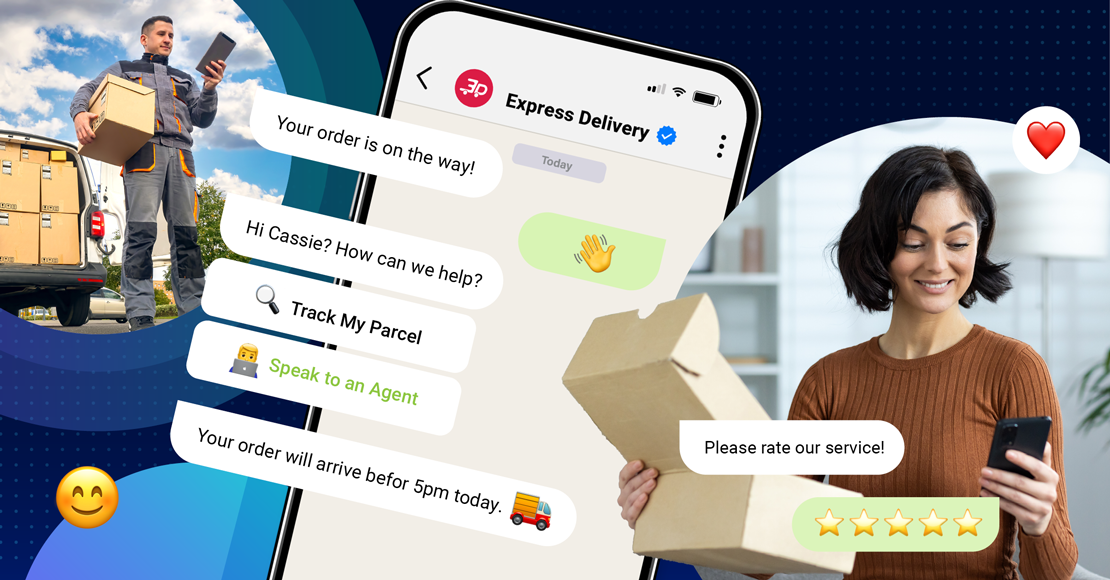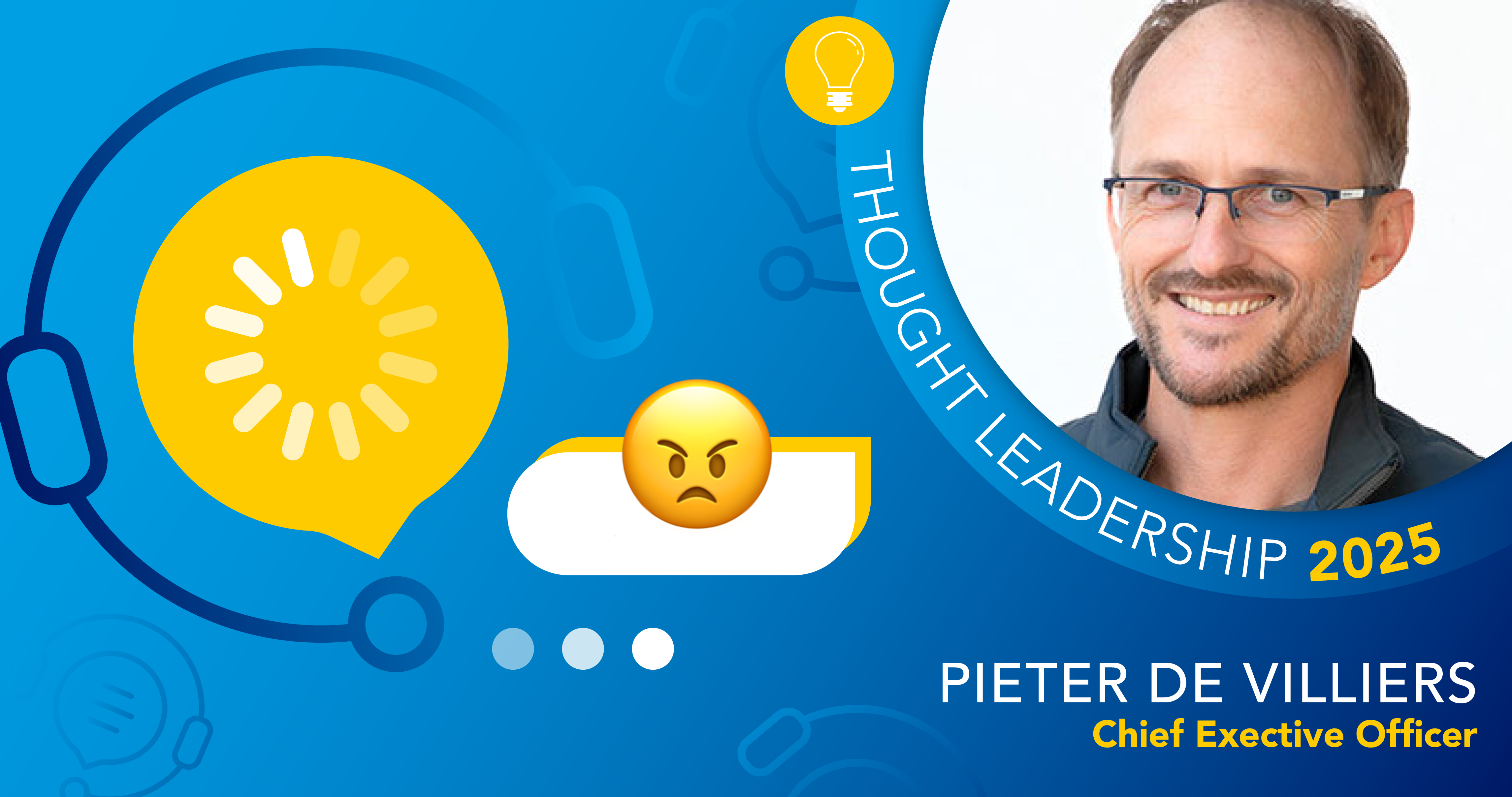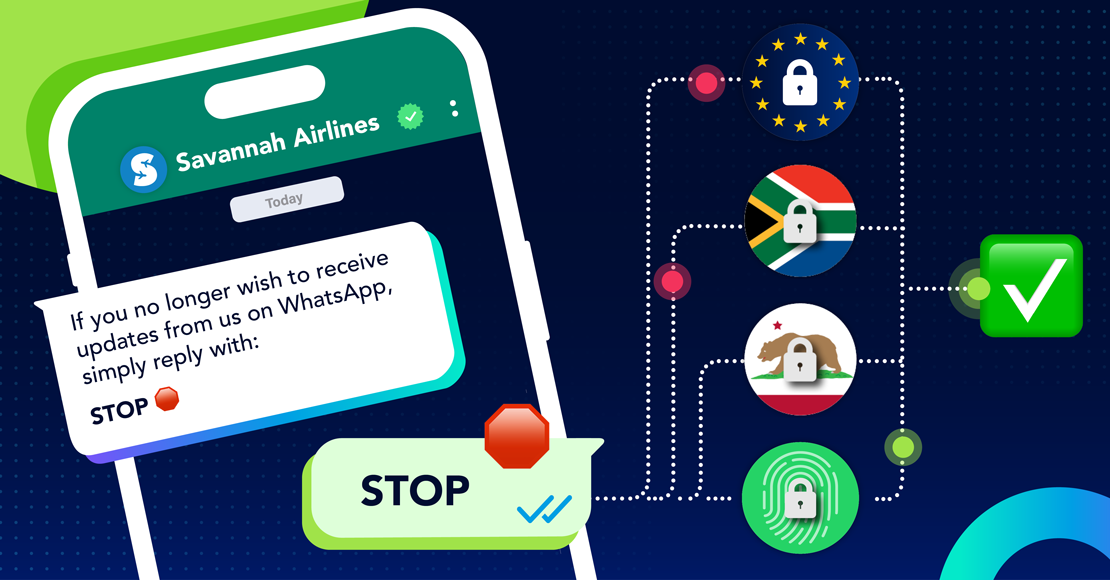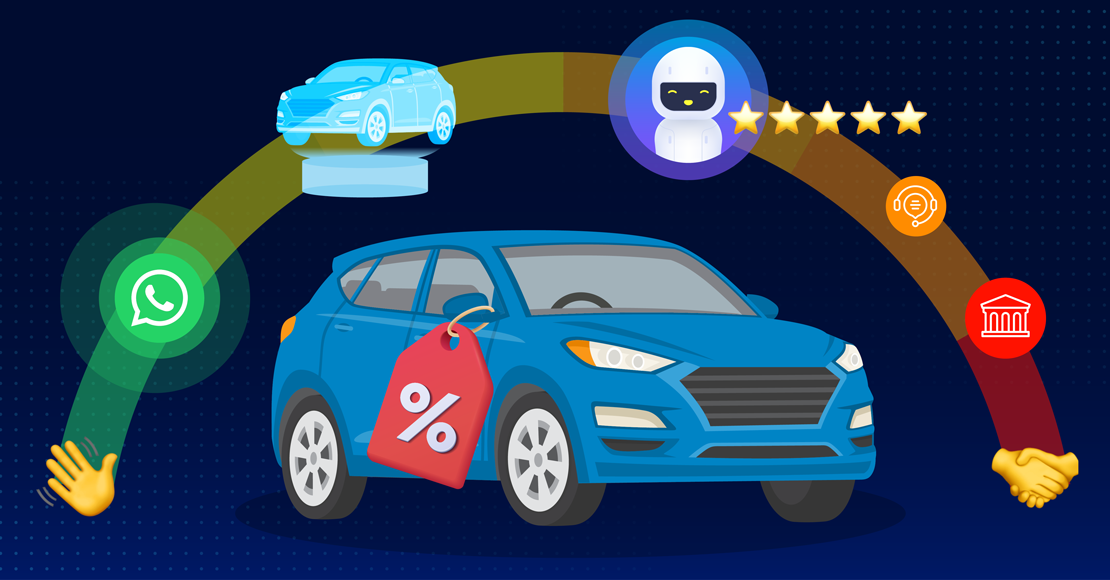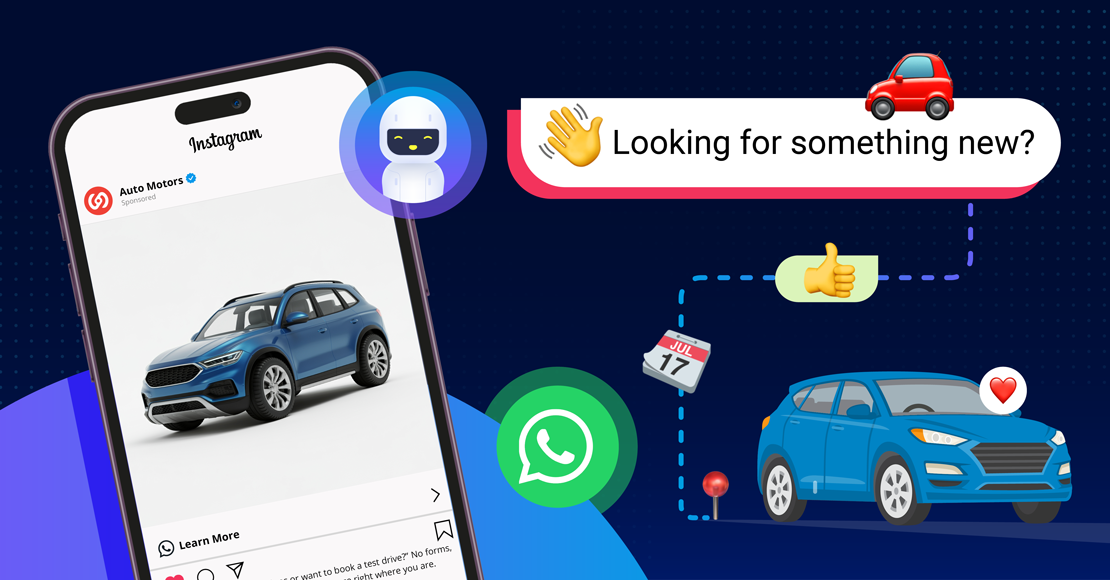
In today's rapidly evolving and highly competitive telecommunications landscape, customer satisfaction has become a critical differentiator for companies seeking to maintain an edge. As consumer expectations continue to rise, telecom providers must adapt their customer service strategies to meet these demands and foster long-term loyalty. Recent studies, such as the South African Telecommunications Sentiment Index by PwC South Africa, highlight persistent negative sentiment among consumers, particularly regarding call center responsiveness and network coverage issues. However, the integration of innovative technologies like WhatsApp messaging and Artificial Intelligence (AI) presents a promising solution to transform customer service and elevate satisfaction levels in the telecoms sector.
Using WhatsApp for Better Customer Service
To address these challenges, integrating WhatsApp messaging into customer service strategies offers a promising solution. WhatsApp, with its widespread global usage, provides a direct and familiar channel for customer interactions, which can significantly enhance the customer service experience.
WhatsApp is the most popular chat messaging platform in the world and is perfectly suited to delivering great customer engagement. Benefits include:
Immediate Communication: WhatsApp enables real-time interactions, significantly reducing response times compared to traditional channels. This immediacy addresses one of the primary pain points in customer service – long wait times.
Automated Responses: Chatbots integrated with WhatsApp can handle routine inquiries, freeing up human agents for more complex issues and ensuring rapid assistance for customers.
Enhanced Engagement: WhatsApp's support for rich media (images, videos, documents) makes it easier for bots and agents to explain complex issues or guide customers through troubleshooting steps, improving the overall support experience.
Personalized Support: A WhatsApp thread and number provide history and context on the customer that allows service agents to provide personalized conversations, facilitating more tailored and effective support. This personalization is crucial in an industry where customer needs can vary widely.
Customer Satisfaction Tracking: WhatsApp facilitates quick post-interaction surveys, enabling telecom companies to gauge satisfaction levels in real time and adjust their strategies accordingly.
Implementing WhatsApp for Positive Change
To capitalize on WhatsApp's capabilities, businesses should consider the following about deploying an effective chat commerce solution.
Integration with Existing Systems
To gain the most value out of the WhatsApp chat commerce solution, the aim should be to integrate with as many business systems as possible, both at the back end and with third parties that are used. This will provide opportunities for automation, to improve operations, while providing customers access to rich, secure digital services, and service agents with comprehensive customer insights to enable more innovative, more informed interactions and ultimately improved customer satisfaction.
Training and Development
Invest in training customer service teams to effectively use the WhatsApp channel for live communication, focusing on personalization, empathy, and technical skills for troubleshooting. Ensure marketing, product, and technology teams understand how to use the channel for automated, personalized messaging experiences, that empower customers to get things done with a simple conversation, instead of having to update an app or visit a website.
Monitoring and Analytics
This ubiquitous messaging channel delivers so many rich data points, and by utilizing advanced analytics these personal WhatsApp interactions between your business and your customers can be analyzed to identify common issues, to continuously improve service delivery strategies based on real, customer feedback. This feedback loop also helps to refine the overall service offering and automation in WhatsApp.
Marketing and Communication
As well as being used for notifications and customer support, WhatsApp can also be used for marketing purposes, sending updates about new plans, services, or promotions directly to customers, enhancing engagement and loyalty. WhatsApp can be used to easily and conveniently gather customer opt-in, as well as deliver granular communication services based on customer selections.
The Impact of AI on Customer Service and Its Synergy with WhatsApp
The potential of recent advancements made with generative AI, and the ease with which conversational chatbots can now be deployed in WhatsApp, will transform ways in which customers can be supported on this channel. AI can enhance customer service operations and streamline various backend processes. Some key areas where AI can make a substantial impact:
Efficient Query Resolution
AI-powered chatbots, trained on business-specific information, can handle massive volumes of routine customer inquiries, providing instant, smart responses, freeing up human agents for more complex issues. AI can further assist human agents by providing suggested responses to customer queries in live chat threads. This can lead to quicker resolutions and higher customer satisfaction.
Predictive, Proactive, Personalised
Analyzing customer data and predicting future behaviors can help MNOs, ISPs, and Telcos offer more personalized services and proactive solutions, as these AI-driven systems can detect and address potential service disruptions before they affect customers. AI can also create tailored experiences, unique to each customer, from customized recommendations to personalized onboarding processes potentially reducing complaints and increasing customer loyalty.
Continuous Improvement
AI systems can continuously learn from interactions, refining their responses and strategies over time to better meet customer needs. By automating routine tasks and optimizing network operations, AI can help drive operational efficiency, reducing costs and allowing companies to invest more in customer service initiatives and digital transformation strategies.
Implementing a Successful Strategy
It is clear that the combination of WhatsApp messaging and AI creates a powerful synergy that can significantly enhance customer service across industries, but particularly in telecommunications.
Imagine deploying an intelligent, AI-powered chatbot, integrated with WhatsApp to provide instant, accurate responses to customer queries 24/7. Imagine dramatically improving response times and customer satisfaction with an advanced system that analyzes customer data and interaction history to deliver personalized responses, making customers feel truly valued and understood. Imagine anticipating issues before they arise, proactively sending helpful information or solutions to prevent problems from escalating. Imagine using AI to continuously refine and improve services and strategies, creating a cycle of ever-improving customer satisfaction and loyalty.
To successfully leverage WhatsApp and AI for improved customer satisfaction, telecom companies should consider the following:
Develop an Implementation Plan: Create a clear roadmap for integrating these technologies into existing customer service frameworks and business operations. Start with catalyst use cases that drive value and convenience.
Invest in Technology Infrastructure: Ensure robust systems are in place to support customer communications at scale, as well as deploying AI in a responsible, secure, and private fashion.
Maintain a Human Touch: While leveraging advanced technology, ensure that human empathy and problem-solving skills remain central to customer service.
Focus on Employee Training: Equip staff with the skills needed to effectively use WhatsApp for customer interactions, and work alongside AI in the process.
Continuously Gather and Act on Feedback: Regularly analyze customer feedback to refine and improve the use of these technologies.
Conclusion
The integration of WhatsApp messaging and AI presents a transformative opportunity for the telecommunications industry to address long-standing customer satisfaction challenges. By leveraging these technologies, companies like MNOs, ISPs, and Telcos can provide faster, more personalized, and more efficient customer service. This not only improves customer satisfaction but also drives operational efficiency and competitive advantage. As the industry continues to evolve, those who successfully implement these innovative solutions will be well-positioned to lead in customer satisfaction and loyalty.
Are you ready to improve customer satisfaction using WhatsApp? Get our demo right now!
Step into the future of business messaging.
SMS and two-way channels, automation, call center integration, payments - do it all with Clickatell's Chat Commerce platform.



